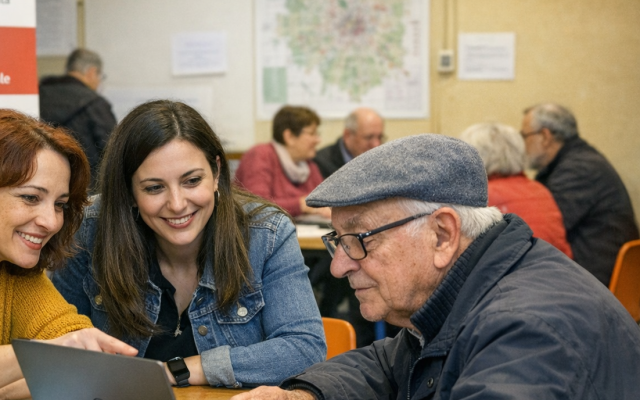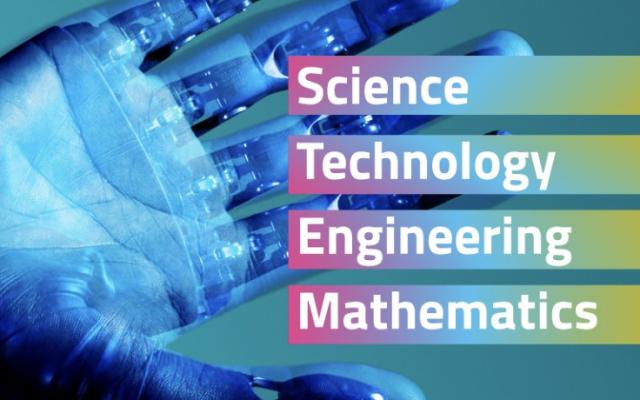Yesterday, the Adnkronos News Agency published a report on Project Ambizione Italia for Schools including an interview with Francesca Del Duca [@Francesca_fmd], Coordinator of the project promoted by Microsoft.
How does a self-driving car learn to drive? How does Spotify understand our musical preferences and suggest the right playlists? How does Facebook recognise our friends in the photos that we publish? Young men and women need to learn about this technology to be ready for the professions of the future. And this gives rise to ad hoc activities to train students transversally. The Fondazione Mondo Digitale, an agency accredited by the Italian Ministry of Education, University and Research, and Microsoft promote Project “Ambizione Italia for Schools” to provide 250,000 students and 20,000 teachers with the digital competences necessary for the future and with a focus on artificial intelligence. "We decided to participate in Microsoft’s “Ambizione Italia” Programme to accelerate digital transformation in Italy, a sector that will significantly contribute to the growth of the economy,” explains Francesca Del Duca, “Ambizione Italia for Schools” Coordinator. In fact, the development of artificial intelligence will create 135,000 new ICT jobs by 2020 with an increase by 2035 of working productivity (+12%) and gross added value (+15% GDP). “As a foundation,” continues Francesca Del Duca, “our mission is to provide an education to those who are excluded from digital innovation and help them keep abreast of technological society. In general, we target disadvantaged categories, especially young men and women. In Italy, there is a mismatch between work supply and demand, especially in the ICT sector as people are lacking the necessary competences. We try to orient and introduce young men and women to artificial intelligence through specific labs that impart the required competences in middle and high schools. As a foundation, we have had to develop all the content as it did not exist.”
We have developed courses for three age groups: Kids (10-13), Youth (14-18) and Advanced (16-18). Moreover, there is a formula for younger children, too. The project is based on 37 hubs around Italy: 10 in schools, 25 Coding Girls Hubs that introduce young women to coding and 2 hubs for labs (Phyrtual Innovation Gym in Rome and the Microsoft House in Milan. Courses are provided for free to all types of schools in Italy. Schools just need to request participation in a given lab. At the end of the 4-hour labs, students receive a participation certificate and an open badge that certifies their new competences. Training concerns both students and teachers. “Teachers are involved because their contribution is fundamental. They can replicate the courses at their schools and facilitate projects. We aim to train at least 3000 teachers – we are halfway,” explains Ms. Del Duca. There also are courses on-line. "These provide advanced training on issues addressed during traditional courses. On-line courses may be completed independently, but we advise everyone to complete both, especially because having a real teacher helps if you have questions. In class, we always provide links to on-line courses. All you need to do is register on the platform and it’s free. The courses are all interconnected, but can also be enjoyed individually,” explains the Coordinator.
Feedback on results? "We always provide,” points out Ms. Del Duca, “a lab evaluation questionnaire that addresses both how enjoyable the course was and the general understanding of the course. Indeed, the latter is useful for us, too, as it’s our first project on these issues. To date, the results have been extremely positive both to the students and teachers. This has driven us to continue developing content and finetune the courses.” The one-year pilot project will end in January 2020, but the FMD and Microsoft intend to continue it. The objective is to reach out to over 2 million young men and women and professionals in Italy by 2020 to provide them with an education that will keep them abreast of technological innovation and artificial intelligence. “We are conducting a project on STEM subjects with the American Embassy. Thanks to Project Coding girls. We are national partners of Facebook for Programme “She Means Business” International Programme. And we are conducting Project “New Jobs Workshop” with Google, for which we received an award for providing education to 10,000 NEETs.”
(Source: ADNK: Ict: Fond. Mondo digitale, a scuola per formare giovani su professioni future)
Adnkronos, January 9, 2019



